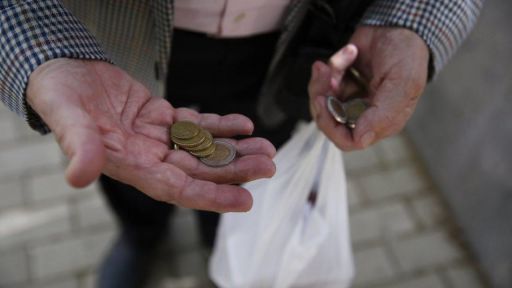Big tobacco turns to rooibos tea to counter upcoming ban

Big tobacco firms including British American Tobacco (BAT) are selling heat sticks made from nicotine-infused substances such as rooibos tea, countering an incoming European Union ban on flavored heated tobacco products.
While the sticks mark a new way to inhale the addictive drug, health experts warn that their safety is unclear.
The industry has produced “heat-not-burn” sticks containing tobacco for years, aiming to avoid the toxic chemicals released via combustion.
These “reduced risk” products, which are placed in a device to heat them, have helped offset falling demand for traditional cigarettes due to rising health awareness and heavy taxation in some markets.
British American Tobacco has now gone a step further, launching a version of its sticks containing nicotine-infused Rooibos tea instead of tobacco in nine European markets, including Germany and Greece. The company plans to roll the product out globally, it told Reuters.
The move provides “adult nicotine users and smokers with the widest possible range of reduced-risk products,” BAT said in a statement.
There may, however, be as yet unknown risks associated with inhaling the tea, researchers warned.
“Anything that burns or is vaporized… and inhaled into the lungs, probably will cause some effects,” said Erikas Simonavicius, a research associate at King’s College London.
Tobacco companies have yet to publish any research showing the health implications of rooibos or other zero-tobacco sticks, Simonavicius added.
BAT, the first big tobacco player to say what its zero-tobacco sticks are made from, declined to say whether it had conducted such research.
Rival Philip Morris International will start rolling out a zero-tobacco stick later this year, it said during an investor day in September.
It declined to tell Reuters what the product is made from, or to comment on its health implications.
PMI CEO Jacek Olczak told shareholders that its zero-tobacco sticks could avoid the regulatory scrutiny that tobacco products face.
BAT’s zero-tobacco sticks are not subject to current EU tobacco rules, the company told Reuters.
That means it can sell rooibos sticks in flavors like peppermint and tropical fruit even after a ban on flavored heated tobacco products is implemented across the bloc later this month.
“The obvious advantage these new products should provide is a way to keep menthol and flavor varieties on the EU market,” Jefferies analyst Owen Bennett said in a note.
Rivals Imperial Brands and Japan Tobacco International declined to comment on whether they will launch zero-tobacco sticks.
However, the regulatory advantages these products enjoy are unlikely to last long, Jefferies’ Bennett and Morningstar senior equity analyst Phil Gorham said. In the EU, new tobacco directives are either overdue or expected in the next few years.
“The next generation of regulation is going to target nicotine,” Gorham said.
In Germany, some smaller purveyors of tea sticks are already in a dispute with authorities over whether their products are subject to existing tobacco tax rules, Fabienne Diekmann, a lawyer representing the companies, said.
Regulation needed
Tobacco companies still make the vast majority of their revenue from cigarettes. BAT, for instance, sells brands like Dunhill, Lucky Strike and Camel in more than 170 markets worldwide, with heavy regulation and taxes in many of them.
Its rooibos heat sticks are available in Germany on BAT’s official heated tobacco website for €5.80 euros, the same as most of its flavored tobacco heat sticks, a pricing policy confirmed by the company to Reuters despite the new product not being subject to EU tobacco taxes.
That means they could achieve a higher profit margin, Morningstar’s Gorham said.
Across the European Union, heated tobacco products must be taxed at a minimum of 20% of the retail price, though national governments can go higher.
Researchers said it was important to provide a wide variety of alternatives to smokers, but these needed to be properly regulated to ensure they do not tempt more people to consume nicotine.
“The way to prevent that … is to be very strict about how these products are marketed and how they are displayed,” said Lion Shabab, a professor of health psychology at University College London.
Tobacco companies say their alternative products are targeted at smokers, and not individuals who do not currently consume nicotine.
Reuters-kathimerini






